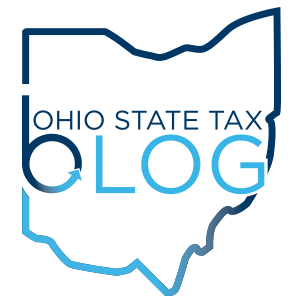Ohio Municipal Income Tax: Cities permitted to tax wages earned by Ohio employees working outside the municipalities while at home during the pandemic.
The Ohio Supreme Court upheld the right of Ohio municipalities to tax wages earned by employees working outside the municipality from home during the COVID-19 pandemic. Schaad v. Alder Slip Opinion No. 2024-Ohio-525 (Feb. 14, 2024). This ruling benefits Ohio’s larger cities by preserving their ability to tax wages that would have been earned in the city based upon the employees’ principal place of work during the pandemic. The Court held that the Due Process Clause under the U.S. Constitution did not apply to intrastate taxation and, thus, the General Assembly was free to dictate where wages were taxable amongst its political subdivisions. Further, this emergency law was not prohibited by the Home Rule Amendment to the Ohio Constitution as the General Assembly has broad authority to grant and limit the taxing powers of its political subdivisions.
This decision bars the countless municipal income tax refund claims filed by Ohio residents for 2020 and 2021 to recover taxes imposed on wages while working from home. However, it does leave open the possibility for non-Ohio residents to recover taxes paid while working remotely from outside the state, since the reasoning may not apply to interstate taxation.
Ohio granted taxing powers to municipalities based upon principal place of work while employees worked from home.
During the pandemic, Ohio declared a state of emergency and issued a stay at home order that restricted in-person work for non-essential businesses. Additionally, many employers mandated or allowed employees to work from home even beyond the terms of the State mandate. This greatly threatened the tax revenue of Ohio’s largest municipalities. To mitigate this issue, House Bill 197 was passed which allowed municipalities to tax nonresident employees who normally reported to work in the municipality throughout the state of emergency. H.B. 197 133rd G.A. OH §29 (2020). The General Assembly later limited this rule to the 2020 tax year, allowing for remote workers to seek refunds for taxes imposed or withheld on 2021 wages earned for services performed outside the municipality. H.B. 110, 134 G.A., OH (2021).
Based upon this emergency taxing power, Cincinnati income tax was imposed on Josh Schaad’s wages while he worked outside the city during 2020. Mr. Schaad requested a refund of taxes imposed on wages earned outside Cincinnati, which request was denied.
Ohio Supreme Court upholds right for the General Assembly to regulate intrastate tax during emergency.
Schaad v. Alder was ultimately decided in favor of Cincinnati, finding such emergency provisions to expand municipal taxing powers to be constitutional. The Ohio Supreme Court distinguished this case from prior nonresident taxation cases involving non-Ohio residents since this case only involved Ohio residents and the intrastate tax system. Additionally, the Court ruled the Home Rule Amendment of the Ohio Constitution which delegated certain powers to municipalities to levy tax did not restrict the General Assembly from limiting or expanding this power. See Ohio Constitution, Article XVIII, §§ 3, 13. Rather the court found that the General Assembly had plenary authority to enact such legislation.
The Ohio General Assembly has significant powers to determine the scope of municipal income tax authority amongst Ohio residents, although significant questions remain concerning limitations on interstate taxation of nonresidents.
While this case involves temporary laws enacted during the COVID-19 pandemic, the opinion expanded the General Assembly’s power over municipal taxing powers and limited the protections of federal due process in Ohio. By concluding that the Ohio General Assembly had the power to designate the subject of municipal taxes, without relation to residency or location where work was performed, the legislature seems to have no restraints on prescribing the scope of municipal taxes imposed on Ohio residents. Further, the Court distinguished the due process limitations of the 14th Amendment due process clause between citizens across state lines and within state lines.
This outcome foreclosed opportunities for further litigation from Ohio residents seeking municipal tax refunds for 2020. It remains to be see whether additional challenges will be levied by nonresidents.
If you have questions regarding this article or any Ohio State and Local Tax Returns, Buckingham Doolittle & Burroughs is a leading law firm specialized in Ohio State and Local Tax. For inquiries, contact Richard Fry at [email protected].
For More Information: See Dan Trevas, Municipalities Taxing Stay-At-Home Workers During Pandemic Was Constitutional, Court New Ohio (Feb. 14, 2024).
